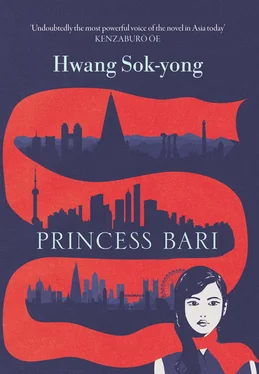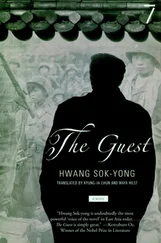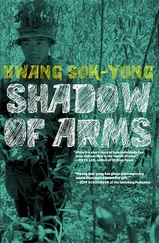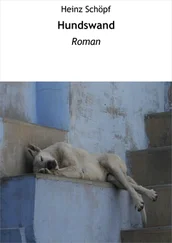Ali and I ate lunch in London before taking an afternoon train. He said no one would be home until dinnertime anyway. When we arrived, his mother was waiting for us. She wore a hijab with a loose tunic covering her ample figure. She was warm and serene; as I stepped through the door, she gave me a big hug. I mumbled the greeting that Ali had taught me — as-salamu alaikum — and she looked me in the eye and said it back. I followed her into the kitchen to try to help her prepare dinner, but she was so adamant that I go sit in the living room with Ali that I turned back. Their home was filled with the distinctive scent of coriander.
Ali’s younger sisters returned from school. They giggled the entire time as Ali introduced me, and we shook hands. His younger brother Usman, who worked, didn’t return home until it was growing dark. He shook Ali’s hand and then shook mine; his grip was so strong that my hand throbbed for a while afterward. Finally, Ali’s father came home. His closely cropped hair was speckled with grey, and he had a nice moustache. I could tell at a glance that Ali would look like him when he grew older. Ali’s father went into the bedroom and changed into a comfortable traditional outfit. I sat next to Ali without saying a word while his entire family crowded around us and stared at me. Each time his sisters met my eye, they giggled. Ali’s father had a kind face, and he didn’t say much. When we were seated around the dinner table, his father prayed briefly in their language. When his mother brought out the food, I got up to help her. Everyone seemed warm and loving.
“Where do your parents live?” Ali’s father asked.
When I hesitated, Ali answered for me: “Her parents have both passed away.”
“Oh no,” his mother said. “I’m so sorry!”
His father said: “God takes the good ones first,” and then quickly changed the subject.
Ali told them that I’d dreamed about his great-grandfather, his grandmother and two aunts who died in Srinagar. His father kept eating and didn’t say a word, but his mother gently admonished Ali.
“Let’s save that story for later.”
When dessert came out, his sisters each grabbed a cookie and ran off to sit in front of the TV, and his mother went back into the kitchen, leaving the rest of us alone at the table with his father.
Ali’s father sipped his chai and said, “Your grandfather told us you two plan to marry. While we’re on the subject, I don’t think it’s a bad idea to rush it a little. You don’t want to hold the wedding too close to Ramadan.”
“Yes, Father. That’s why we want to get married next month.”
“Next month?” his mother exclaimed. She came running out of the kitchen when she heard that. “That’s too fast. You should give yourselves at least half a year to date and get to know each other.”
Ali’s father laughed.
“I’ve already discussed it with your grandfather,” he said. “We’re thinking of buying you a car as a wedding gift. You’ll make better money through your minicab business that way, don’t you think?”
“Really? Then I won’t have to borrow someone else’s car and work by the hour.”
“You won’t owe me anything, but you will have to repay your grandfather. Yes, now you’ll be able to start a new life, raising kids of your own and attending mosque regularly for a change.”
A couple of days after we returned from Leeds, Luna and I were heading home from work after a day at Tongking. A bright light was shining out of the window next door. Curious to know who it was, I knocked on the door. The Nigerian woman answered it, dressed in an apron and a headscarf. She looked like she’d been packing, and waved me inside. Her belongings were all bundled up.
“I’m moving out tomorrow,” she said. “The furniture was here when I moved in, but the bed is new. Abdul paid for half of it, so that worked out well for me. He says you’re moving in?”
I told her I was, and she clasped my hand.
“Congratulations! Abdul told me you’re marrying his grandson.”
She told me what happened to her husband before I had a chance to ask.
“He’s definitely being deported. But I can’t bear to go back with him. He and I are children of the Biafran civil war.”
I didn’t understand.
“Countless children died in that war. What I mean is that he and I survived by the skin of our teeth. He’ll do whatever he has to do to make it back.”
Later, Ali explained to me how African refugees would cross the Strait of Gibraltar, travel overland through Europe and then cross the Strait of Dover into England. The journey to Morocco and across the strait in a tiny boat was incomparably more dangerous than my crossing of the Tumen River. After that, they still had to travel over rugged mountains on foot or stow away on trains, and make it over several national borders before finding a way to get across yet another strait. Refugees trying to make it to London couldn’t do it without a lifeline of some kind, at least one person here who could help them get settled.
A minicab driver from Ghana that Ali knew had frittered away three years of his life trying to cross the Strait of Gibraltar. He was caught twice while trying to cross the Strait of Dover from Calais, and finally made it into England by clinging to the roof of the Eurostar. On the approach to the Channel Tunnel, the high-speed train passed through a pair of steep embankments that were built for forty or fifty kilometres on either side of the tracks to protect crops in the surrounding fields. The train had to slow down as it got closer to the tunnel, so refuge-seekers waiting at the top of the embankment would jump onto the roof of the train as it passed. They would cling there for the twenty-minute ride, enduring the high speed and brutal wind. If they made it to the other side, they had to jump off the train before it started to pick up speed again. Railway workers on both the French and British sides sometimes collected the bodies of stowaways who had fallen to their deaths inside the tunnel.
Ali’s friend had been inspired to attempt the crossing by a friend’s uncle, who was famous back home for making it across that way. But when he got to London and asked around, he learned that his friend’s uncle had been dead for years. The man’s name alone had served as a symbol of hope, and had kept him going on his journey. We stopped telling our stories in detail, but whenever the subject of our home countries came up, it always seemed to end in fighting and starvation and disease and brutal, fearful generals seizing power. There were still so many people dying in every corner of the world, and people crossing endless borders in search of food, just so they could live without the constant threat of death.
After the Nigerian woman moved out, Ali and I found a little time each evening to work on repainting the walls, fixing the sink and scrubbing the flat clean from top to bottom. As the layout was the same as the flat I’d shared with Luna, I felt right at home.
The whole process of getting married was called shadi , but if I remember correctly, mayoun and mehndi were the names for the parts of the ceremony where the friends of the bride and groom were invited to eat and exchange gifts the day before the wedding. We held the mayoun and mehndi in our new flat, but the baraat and valima , in which we were actually wed, took place at Ali’s parents’ home in Leeds.
I had no close friends, let alone any of my own flesh and blood in this city, so it was an opportunity to confirm the few, precious relationships I did have with those who had helped me along the way. As Uncle Lou and Uncle Tan were as good as legal guardians to me, I asked if one of them would be willing to be my chaperone. They both said yes and argued over which of them should get to do it, but in the end I assigned the task to Uncle Tan. Though Luna was born in Britain, she was also Bangladeshi, and knew the traditions more or less; she agreed to be my bridesmaid.
Читать дальше












